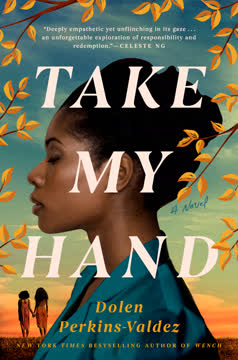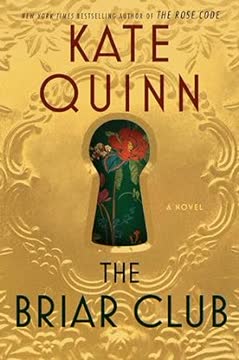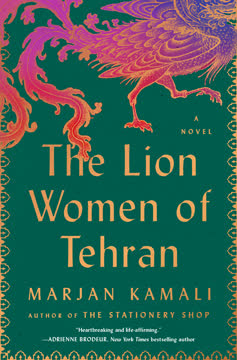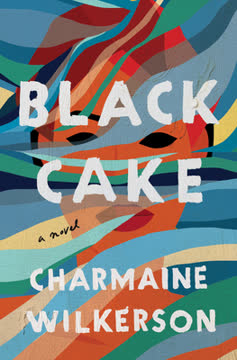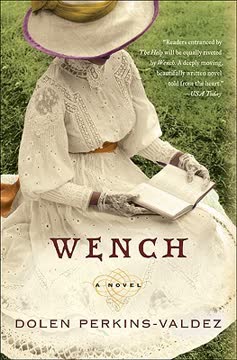Plot Summary
Ghosts in White Coats
Civil Townsend, a Black doctor in Memphis, 2016, is compelled to revisit her past as a young nurse in 1970s Montgomery, Alabama. She feels the weight of two sisters, India and Erica, whose lives were forever changed by her actions and the system she worked within. Civil's story is a confession and a reckoning, a way to lay ghosts to rest and pass on a painful legacy to her daughter, Anne. The narrative is framed as a personal history, a stitching together of memory, regret, and the need for truth.
New Nurse, Old Wounds
Fresh from nursing school, Civil joins the Montgomery Family Planning Clinic, eager to uplift her community. She's assigned to care for India and Erica Williams, two young Black girls living in rural poverty. Civil's privileged upbringing contrasts sharply with the sisters' deprivation. She befriends fellow nurse Alicia and navigates the clinic's strict, white supervisor, Mrs. Seager, who preaches a mission of helping the poor but enforces a rigid, top-down approach. Civil's own secret—an abortion she had as a student—fuels her belief in reproductive choice, but also her guilt.
Sisters on the Farm
Civil's first home visit to the Williams sisters exposes her to squalor: a one-room shack, filth, hunger, and neglect. India is mute; Erica is wary but bright. Their grandmother, Mrs. Williams, is proud but beaten down. Civil is shocked to learn the girls are on birth control shots, despite India not having started menstruation. The visit is a turning point, awakening Civil's sense of responsibility and her discomfort with the assumptions underlying her work.
Good Intentions, Bad Medicine
At the clinic, Civil and Alicia debate the ethics of giving Depo-Provera shots to children. Ty, Civil's old friend and former lover, raises concerns about the drug's safety, referencing the recent Tuskegee syphilis revelations. Civil's faith in the clinic's mission is shaken as she realizes the program's focus is less on choice and more on preventing poor Black women from having children. The nurses' camaraderie is tested by the weight of their work and the subtle, pervasive racism of the system.
The Shot and the Secret
Civil discovers India was given birth control before puberty, a mistake overlooked by the previous nurse. She tries to compensate by helping the family: bringing supplies, advocating for better housing, and taking the girls under her wing. Civil's efforts to move the Williamses into public housing are met with resistance from their father, Mace, whose pride and illiteracy complicate matters. Civil's own boundaries blur as she becomes emotionally entangled with the family.
Poverty's Price
The Williamses' move to a new apartment is a small victory, but the family's struggles persist. Civil and Alicia confront the limitations of their roles: they can offer temporary relief, but not systemic change. The girls begin to thrive in small ways—cleaner, better fed, attending school—but the shadow of the clinic's interventions lingers. Civil's relationship with Mace deepens, complicated by attraction, guilt, and the unspoken trauma of his wife's death.
The Apartment Miracle
With help from her mother and friends, Civil secures a new home for the Williamses. The move is transformative: the girls experience comfort and dignity for the first time. Civil's sense of purpose is renewed, but she remains uneasy about the clinic's practices. The community's divisions—between educated and poor, city and country—are stark. Civil's efforts to help are both celebrated and resented, highlighting the complexities of advocacy and saviorism.
Hair, Music, and Hope
Civil bonds with the sisters through rituals of Black girlhood: washing hair, sharing music, and storytelling. These moments of care are acts of resistance against the dehumanization they face. Civil's own family history—her mother's depression, her father's expectations—intertwines with her growing attachment to the girls. The boundaries between nurse, advocate, and surrogate mother blur further.
The Weight of History
Civil, Alicia, and Ty investigate the history of medical experimentation on Black bodies, drawing parallels between the Tuskegee Study and their own work. They consult mentors and gather evidence about Depo-Provera's dangers and the lack of informed consent. The nurses grapple with their complicity and the legacy of eugenics, forced sterilization, and reproductive injustice. Civil's faith in the system is eroded, replaced by a determination to seek accountability.
The Unthinkable Surgery
Without Civil's knowledge, Mrs. Seager arranges for India and Erica to be surgically sterilized, using forged or coerced consent from their illiterate guardians. Civil discovers the girls in the hospital, traumatized and in pain. The violation is total: their childhood, agency, and futures as mothers are stolen. Civil is consumed by guilt and rage, as are the girls' family and the wider community. The event becomes a national scandal, catalyzing a legal battle.
Breaking the Silence
Civil, Alicia, and the Ralseys (Ty's family) mobilize to support the Williamses and pursue justice. They connect with Lou Feldman, a young white civil rights lawyer, and begin building a case. The nurses confront their own roles in the system, some confessing complicity, others seeking redemption. The lawsuit exposes a pattern of coerced sterilizations across the country, implicating federal agencies and igniting public outrage.
Lawsuit and Reckoning
The case becomes a class-action suit, representing all poor people subjected to involuntary sterilization under federally funded programs. Civil and the nurses gather evidence, track down other victims, and face backlash from the community and authorities. The trial is grueling, with the government defending its actions and minimizing harm. Civil's personal and professional lives are upended; she loses her job and struggles with isolation.
Testimony in Washington
The Williams family, Civil, and Lou travel to Washington, D.C., to testify before Senator Ted Kennedy's committee. Their story is broadcast nationwide, forcing the country to confront the reality of medical racism and reproductive abuse. The girls' testimony is heartbreaking; their pain and loss are undeniable. The hearing galvanizes support for stricter guidelines and oversight, but also exposes the limits of legal remedies.
The Nurses' Redemption
Civil and the other nurses, wracked with guilt, organize to document abuses and support the lawsuit. They confront the dangers of good intentions and the necessity of informed consent. Through mutual support, prayer, and activism, they begin to heal and reclaim their agency. The process is messy and incomplete, but it marks a turning point in their understanding of advocacy and responsibility.
The Verdict and Its Cost
The court rules in favor of the Williamses and all victims of coerced sterilization, mandating new federal guidelines and protections. The victory is bittersweet: the girls' futures remain irrevocably altered, and the family chooses to leave Montgomery for a quieter life. Civil is left to reckon with the limits of justice, the persistence of trauma, and the need to move forward. The community is changed, but scars remain.
Lost and Found
Years later, Civil seeks out the sisters, now living together in modest circumstances. India is ill, Erica is her caretaker. The reunion is tender and fraught, filled with unspoken apologies and shared memories. Civil realizes that time has not erased the pain, but love and connection endure. The story closes with a sense of hard-won peace, the acknowledgment of lineage, and the hope that telling the truth can heal, if not undo, the past.
Moving On, Moving Forward
Civil reflects on the meaning of her journey, the lessons learned, and the importance of bearing witness. She reconnects with Ty, contemplates her own choices, and passes the story to her daughter. The narrative ends with a call to remember, to fight for justice, and to honor the lives of those who suffered. The ghosts are not banished, but they are named, and their story is now part of the fabric of a new generation.
Characters
Civil Townsend
Civil is the protagonist and narrator, a Black woman whose journey from idealistic nurse to seasoned doctor is marked by guilt, activism, and self-discovery. Raised in privilege but deeply connected to her community, Civil is driven by a desire to help but often struggles with boundaries and the dangers of good intentions. Her relationships—with her parents, Ty, Alicia, and especially the Williams sisters—are complex, shaped by love, regret, and the search for redemption. Over time, Civil evolves from a passive participant in systemic harm to an active advocate for justice, though she never fully escapes the weight of her past.
India Williams
India is the younger Williams sister, mute and developmentally delayed, yet deeply sensitive and loving. Her vulnerability makes her both a target of the system's abuses and a symbol of its failures. India's forced sterilization is a central trauma of the novel, and her later illness underscores the long-term consequences of medical violence. Despite her suffering, India's presence is a source of joy and connection for those around her, especially her sister and Civil.
Erica Williams
Erica, the older sister, is bright, stubborn, and fiercely devoted to India. She navigates poverty, loss, and systemic neglect with a mix of defiance and resignation. Erica's voice is often overlooked, but her perspective is crucial: she articulates the pain of being denied motherhood and the struggle to find agency in a world that devalues her. As an adult, Erica becomes India's caretaker, embodying both the burdens and the strengths of Black womanhood.
Mace Williams
Mace is the girls' father, a laborer whose pride and illiteracy complicate his ability to protect his family. He is wary of outsiders and government intervention, yet ultimately relies on Civil's help. Mace's grief over his wife's death and his daughters' violation is profound, leading to moments of anger, tenderness, and vulnerability. His relationship with Civil is fraught with attraction, resentment, and mutual misunderstanding.
Mrs. Patricia Williams
The girls' grandmother, Mrs. Williams, is a figure of endurance and quiet strength. She carries the scars of poverty, racism, and loss, yet remains a source of wisdom and stability. Her interactions with Civil are marked by both gratitude and resistance, reflecting the complexities of receiving help from those outside the family. Mrs. Williams' journey from the farm to the apartment, and eventually to a new life, mirrors the broader struggle for dignity and self-determination.
Alicia Downs
Alicia is Civil's colleague and confidante, a nurse whose own history of family secrets and religious upbringing shapes her worldview. She is pragmatic, loyal, and often the voice of reason, but also struggles with guilt over her role in the clinic's abuses. Alicia's evolution from bystander to activist is gradual, marked by moments of courage and self-doubt. Her friendship with Civil is tested but ultimately endures.
Ty Ralsey
Ty is Civil's childhood friend and former lover, now a college president. He is intelligent, principled, and deeply invested in Civil's well-being. Ty's skepticism about the clinic's practices and his advocacy for the Williamses push Civil to confront uncomfortable truths. Their relationship is marked by unresolved feelings, shared history, and mutual respect.
Mrs. Linda Seager
The white supervisor of the clinic, Mrs. Seager embodies the dangers of good intentions unchecked by self-awareness or humility. She believes in her mission to help the poor but enforces policies that dehumanize and harm her patients. Her actions—culminating in the sterilization of the Williams sisters—are driven by a paternalistic, eugenic logic. Mrs. Seager's legacy is one of both service and violence, a reminder that systemic racism often wears a benevolent face.
Lou Feldman
Lou is the white civil rights attorney who takes on the Williams case. Inexperienced but passionate, he becomes a crucial advocate for the family and a catalyst for systemic change. Lou's outsider status is both an asset and a liability; he is trusted by some, resented by others. His partnership with Civil and the nurses is marked by mutual learning and respect. Lou's personal life—his marriage, new fatherhood—adds depth to his character and underscores the stakes of the fight.
June Townsend
Civil's mother, June, is a talented but emotionally distant artist whose struggles with depression shape Civil's upbringing. Her relationship with Civil is marked by love, misunderstanding, and a shared sense of otherness. June's journey toward healing parallels Civil's own, offering a model of resilience and the possibility of transformation.
Plot Devices
Framing Narrative / Dual Timeline
The novel is structured as a confession from Civil in 2016 to her daughter, interspersed with flashbacks to 1973. This dual timeline allows for reflection, self-critique, and the layering of personal and historical memory. The framing device emphasizes the importance of bearing witness, passing on stories, and confronting the ghosts of the past.
Medical Ethics and Informed Consent
The central plot device is the use of medical authority to justify reproductive control over poor Black women and girls. The lack of informed consent, the use of experimental drugs, and the coercion of illiterate patients are recurring motifs. The narrative exposes how good intentions can be weaponized, and how the language of public health can mask eugenics and racism.
Parallel Histories
The story draws explicit parallels between the Williams sisters' case and real historical events like the Tuskegee Syphilis Study and the Relf v. Weinberger lawsuit. These references serve as foreshadowing and deepen the reader's understanding of the systemic nature of medical racism. The novel uses these parallels to question who is allowed to be a mother, who is deemed fit, and who gets to decide.
Redemption and Collective Action
The nurses' journey from complicity to activism is a key plot device. Their collective efforts to document abuses, support the lawsuit, and seek forgiveness illustrate the possibility of redemption—not through individual heroism, but through solidarity and accountability. The narrative structure allows for multiple perspectives and the acknowledgment of shared responsibility.
Legal Drama and Testimony
The lawsuit and subsequent testimony in Washington, D.C., provide the novel's dramatic climax. The courtroom scenes are used to expose the mechanics of power, the limitations of the law, and the emotional toll of seeking justice. The act of bearing witness—telling the truth in public—is both cathartic and fraught, offering closure but not full healing.
Analysis
Take My Hand is a powerful exploration of the intersection of race, gender, poverty, and medical ethics in America. Through the story of Civil Townsend and the Williams sisters, Dolen Perkins-Valdez exposes the enduring legacy of reproductive injustice and the dangers of paternalistic "help." The novel interrogates the line between advocacy and saviorism, the limits of good intentions, and the necessity of informed consent. It challenges readers to confront uncomfortable truths about the history of medicine, the complicity of well-meaning individuals, and the ways in which systemic racism persists under the guise of progress. Ultimately, the book is a call to remember, to bear witness, and to fight for justice—not just for the victims of the past, but for all those still vulnerable to the abuses of power. Its lessons are urgent and relevant, reminding us that the struggle for reproductive justice and bodily autonomy is far from over, and that healing begins with truth-telling and collective action.
Last updated:
FAQ
Synopsis & Basic Details
What is Take My Hand about?
- A Nurse's Reckoning: Take My Hand follows Civil Townsend, a Black doctor in 2016 Memphis, as she recounts her formative experience as a young nurse in 1973 Montgomery, Alabama. The narrative, framed as a confession to her adopted daughter, Anne, delves into Civil's first job at a family planning clinic and her assignment to care for two young Black sisters, India and Erica Williams, living in extreme poverty.
- Unveiling Systemic Injustice: The story quickly shifts from Civil's initial idealism to her growing unease with the clinic's practices, particularly the administration of Depo-Provera birth control shots to underage girls. It exposes the insidious nature of medical racism and eugenics, culminating in the shocking, involuntary sterilization of the Williams sisters, a pivotal event that propels Civil and her allies into a national legal battle.
- Legacy of Reproductive Rights: Beyond the immediate plot, the novel is a profound exploration of reproductive justice, medical ethics and informed consent, and the lasting impact of historical trauma on Black communities. It examines themes of complicity, redemption and collective action, and the complex interplay of good intentions with harmful outcomes, all while highlighting the resilience of the human spirit in the face of profound injustice.
Why should I read Take My Hand?
- Deep Emotional Resonance: Readers should delve into Take My Hand for its raw emotional honesty and profound exploration of guilt, empathy, and the search for meaning. Civil's journey, marked by personal secrets and a deep sense of responsibility, offers a powerful human lens through which to understand systemic injustice, making it a compelling read for those interested in character-driven narratives.
- Crucial Historical Context: The novel provides vital insight into a lesser-known but critical moment in American history—the coerced sterilization of poor women of color, drawing parallels to the Tuskegee Syphilis Study. It's an essential read for anyone seeking to understand the historical roots of reproductive injustice and medical ethics in the United States, offering a fresh perspective on the themes in Take My Hand.
- Thought-Provoking Moral Dilemmas: Dolen Perkins-Valdez masterfully navigates complex moral questions, challenging readers to consider the dangers of "good intentions" and the blurred lines between advocacy and saviorism. The book sparks important discussions about accountability, the power dynamics inherent in healthcare, and the enduring fight for bodily autonomy, making it a perfect choice for book clubs and literary discussions.
What is the background of Take My Hand?
- Inspired by Relf v. Weinberger: The novel is loosely inspired by the real-life 1973 case of Relf v. Weinberger, where two young Black sisters, Minnie Lee and Mary Alice Relf (aged 12 and 14), were sterilized without consent in Montgomery, Alabama, by a federally funded agency. This historical event forms the core of the Take My Hand historical context, highlighting a dark chapter in reproductive rights.
- Echoes of Tuskegee Experiment: The author explicitly connects the Williams sisters' story to the infamous Tuskegee Syphilis Study, which left hundreds of Black men untreated for decades. This parallel underscores the systemic nature of medical racism and the pervasive disregard for Black bodies, prompting national discussions about medical ethics in Take My Hand and culpability.
- Post-Roe v. Wade Era: Set in 1973, the story unfolds just months after the landmark Roe v. Wade decision legalized abortion, creating a complex backdrop where reproductive choice was legally affirmed yet simultaneously undermined for vulnerable populations through coercive sterilization practices. This tension is central to the reproductive justice themes explored in the novel.
What are the most memorable quotes in Take My Hand?
- "I tell this story to stitch their names inside your clothes, too. A reminder to never forget." (Chapter 1): This opening line immediately establishes the novel's framing narrative / dual timeline and Civil's profound motivation to bear witness. It encapsulates the central themes in Take My Hand of memory, legacy, and the enduring impact of past injustices, emphasizing the personal and collective responsibility to remember.
- "They can always take it away. It ain't yours, Miss Civil. None of this. Don't you know that? Ain't nobody ever taught you what they can take? They just take take take." (Chapter 22): Mrs. Williams's poignant words reveal her deep understanding of systemic oppression and the precariousness of life for poor Black families. This quote powerfully articulates the theme of agency (or lack thereof) and the constant threat of dispossession, offering a stark counterpoint to Civil's initial idealism.
- "Having children doesn't make you a woman." (Chapter 24): Civil's defiant statement to Mace, uttered in a moment of raw emotion, challenges traditional notions of womanhood and motherhood. It highlights the novel's exploration of female identity beyond biological capacity, particularly in the context of forced sterilization, and underscores Civil's evolving understanding of Civil Townsend motivations and the girls' stolen futures.
What writing style, narrative choices, and literary techniques does Dolen Perkins-Valdez use?
- Intimate Framing Narrative: Perkins-Valdez employs a dual-timeline, first-person narrative, with present-day Civil (2016) recounting her 1973 experiences to her adopted daughter, Anne. This framing narrative allows for reflective commentary, adding layers of wisdom, regret, and a sense of historical distance to the immediate events, enriching the Take My Hand analysis.
- Sensory-Rich Prose & Dialogue: The author uses vivid sensory details to immerse the reader in the settings, from the "odor of urine, body funk, dog" in the Williams' shack to the "salty scent of pork sausage" at the Magic City Classic. Dialogue is authentic and often reveals character through dialect and unspoken subtext, particularly in the interactions between Civil and the Williams family, enhancing the character development Civil Townsend.
- Symbolism and Motif: Perkins-Valdez weaves in powerful symbols and recurring motifs, such as hands (representing care, connection, and violation), food (sustenance, community, and shame), and the contrasting imagery of Civil's privileged home versus the Williams' squalor. These elements subtly reinforce the novel's Take My Hand symbolism and its exploration of class, race, and dignity.
Hidden Details & Subtle Connections
What are some minor details that add significant meaning?
- The Significance of Hands: The recurring motif of hands throughout the novel subtly underscores themes of care, connection, and violation. From Civil's initial thought to "stitch their names inside your clothes" (Ch 1) to Mace grabbing Civil's hand (Ch 15) and India holding Civil's blouse (Ch 30), hands symbolize the intimate bonds formed, but also the invasive acts performed, such as the doctor's hands during Civil's abortion or the nurses' hands administering shots, highlighting the complex Take My Hand symbolism.
- Civil's Evolving Relationship with Cars: Civil's cars reflect her journey and changing perspectives. Her brand-new Dodge Colt (Ch 2) initially symbolizes her privileged status and desire to avoid drawing attention, contrasting with Mama's older Pinto. Later, her reliable Volvo (Ch 5) in 2016 represents her independence and solitary path, while Mace's broken truck (Ch 15) highlights his economic struggles, subtly connecting personal mobility to social standing and freedom.
- Food as a Symbol of Care and Shame: Food is a powerful, often unspoken, detail that reveals character and social dynamics. Civil's initial refusal of Mrs. Williams's stew (Ch 4) due to the squalor, contrasted with her later appreciation and the family's delight in Nellie's biscuits (Ch 25), illustrates the complex interplay of pride, poverty, and sustenance. Mrs. Williams's cooking, even over a hole in the ground, becomes an act of love and resilience, a subtle detail in the Take My Hand analysis.
What are some subtle foreshadowing and callbacks?
- Tuskegee Study as a Precursor: The early discussions about the Tuskegee Syphilis Study (Ch 10, 11) serve as potent foreshadowing for the coerced sterilizations. Miss Pope's chilling explanation of "bad blood" and the government's experimentation on Black men directly prepares the reader for the similar medical abuses inflicted upon the Williams sisters, deepening the themes in Take My Hand around systemic racism and medical ethics.
- Civil's Abortion Trauma Echoes: Civil's personal history of abortion (Ch 3) subtly foreshadows her deep empathy and later outrage over the girls' sterilization. Her memory of the procedure, the lack of pain medication, and Miss Pope's anguished call (Ch 17) are callbacks that inform her visceral reaction to finding Erica and India in pain, highlighting the personal stakes in the broader fight for reproductive justice themes.
- Mrs. Seager's "Unfit" Notes: The seemingly minor detail of Mrs. Seager's notes labeling patients as "unfit" (Ch 13) subtly foreshadows her eugenic mindset and her ultimate decision to sterilize the girls. This callback to historical eugenics practices reveals the underlying ideology driving the clinic's actions, providing crucial insight into Mrs. Seager motivations and the systemic nature of the injustice.
Who are the most significant supporting characters?
- Miss Pope, the Librarian-Mentor: Miss Pope, the Tuskegee librarian, serves as a crucial intellectual and moral guide for Civil, Alicia, and Ty. She not only provides historical documents on medical experimentation (Ch 11) but also offers a safe space and practical help during Civil's abortion. Her character embodies the intellectual resistance and quiet strength within the Black community, providing a historical and ethical framework for the nurses' actions and influencing Civil Townsend motivations.
- Nellie, the Welcoming Cousin: Nellie, the Williams family's cousin in Rockford, represents the enduring strength and interconnectedness of extended family networks in the Black South. Her open-hearted hospitality and willingness to take in Mace and the girls (Ch 25, 39) offer a vital alternative to the systemic "take take take" (Ch 22) of government assistance, symbolizing community resilience and the importance of chosen family.
- Eugenia Wooten, Mrs. Seager's Daughter: Eugenia's brief but impactful appearance in 2016 (Ch 36) provides a crucial, nuanced perspective on Mrs. Seager's legacy. Her desperate plea for Civil to confirm her mother wasn't a "monster" reveals the intergenerational burden of complicity and the human cost of systemic injustice, adding a layer of complexity to the Mrs. Seager motivations and the novel's exploration of forgiveness.
Psychological, Emotional, & Relational Analysis
What are some unspoken motivations of the characters?
- Civil's Quest for Atonement: Beyond her stated desire for justice, Civil is driven by an unspoken need to atone for her own past abortion and her initial complicity in the clinic's practices. Her intense dedication to the Williams sisters, even over her own career and personal life, is a form of penance, a way to "erase the wrong I'd done by injecting that little girl with birth control" (Ch 6), revealing deep Civil Townsend motivations.
- Mace's Protective Pride: Mace's initial resistance to Civil's help and his later withdrawal are rooted in a profound, unspoken pride and shame over his illiteracy and inability to protect his family after his wife's death. His defensiveness masks a deep vulnerability and a desire to be the sole provider, making his eventual acceptance of help a significant emotional turning point in his Mace Williams character analysis.
- Mrs. Seager's Paternalistic Control: While outwardly presenting as "trying to do the right thing" (Ch 2), Mrs. Seager's unspoken motivation appears to be a deeply ingrained, paternalistic belief in controlling the reproduction of poor Black women. Her notes labeling patients "unfit" (Ch 13) and her comment about Mace's "kind" (Ch 23) suggest a eugenic ideology, revealing a darker layer to her Mrs. Seager motivations that goes beyond simple good intentions.
What psychological complexities do the characters exhibit?
- Civil's Savior Complex and Guilt: Civil grapples with a complex mix of genuine empathy and a subtle savior complex, fueled by her privileged background and personal trauma. Her internal monologue reveals her struggle with "not wanting to play around in folk lives" (Ch 19) while simultaneously feeling compelled to "fix" them, leading to profound guilt when things go wrong, a key aspect of Civil Townsend motivations.
- Mace's Mask of Stoicism: Mace presents a stoic, often defensive exterior, but beneath it lies deep grief and a sense of emasculation. His inability to read and his reliance on Civil for his family's well-being create a psychological tension between his pride and his vulnerability. His rare moments of tenderness, like his touch on Civil's neck (Ch 35), reveal the emotional toll of his circumstances, central to Mace Williams character analysis.
- Mrs. Williams's Resilient Cynicism: Mrs. Williams exhibits a complex psychological resilience born from a lifetime of systemic oppression. Her "take take take" philosophy (Ch 22) is not bitterness but a pragmatic understanding of power dynamics, a coping mechanism that allows her to navigate a world that constantly seeks to dispossess her. Her quiet strength and eventual decision to move (Ch 39) demonstrate a profound self-determination.
What are the major emotional turning points?
- Civil's Discovery of India's Pre-Pubescent Shot: The moment Civil realizes India, an eleven-year-old, was given birth control before ever menstruating (Ch 4) is a major emotional turning point. It shatters her idealism about the clinic's mission and ignites her moral outrage, shifting her from a compliant nurse to a questioning advocate, profoundly impacting Civil Townsend motivations.
- The Hospital Revelation of Sterilization: Finding Erica and India in the hospital, post-surgery and in immense pain (Ch 19), is the emotional climax for Civil. This scene is a visceral betrayal, transforming her guilt into a fierce determination for justice. The girls' cries and Erica's bewildered question, "They say we can't have no babies" (Ch 19), mark an irreversible emotional wound for Civil.
- Mrs. Williams's Decision to Leave Montgomery: Mrs. Williams's announcement at Thanksgiving dinner that the family is leaving Montgomery (Ch 39) is a poignant emotional turning point, signifying their reclaiming of agency. While a victory for their self-determination, it's a personal heartbreak for Civil, forcing her to confront the limits of her "help" and the reality that her connection to them, though profound, is not one of ownership.
How do relationship dynamics evolve?
- Civil and Ty: From Lovers to Confidantes: Civil and Ty's relationship evolves from childhood friends to secret lovers, then to a strained distance after Civil's abortion, and finally to a mature, respectful friendship. Ty becomes Civil's moral compass and unwavering ally in the fight for justice, demonstrating a deep, enduring love that transcends romance, as seen when he pays for India's testing (Ch 18) and supports Civil's activism.
- Civil and Mace: Attraction to Mutual Respect: Their dynamic shifts from initial suspicion and attraction (Ch 7, 19) to a complex bond forged in shared trauma and a mutual desire to protect the girls. Mace's initial resentment of Civil's "meddling" (Ch 16) gradually gives way to a grudging respect and even tenderness, culminating in his confession of love and gratitude (Ch 51), though their paths diverge.
- The Nurses' Collective Conscience: The relationships among the nurses transform from professional colleagues to a collective of conscience. Initially, some are complicit or fearful, but the revelation of the sterilizations and Civil's activism galvanizes them. Their secret meeting (Ch 33) and shared prayer (Ch 33) mark their evolution into a unified force seeking redemption and collective action, demonstrating the power of solidarity.
Interpretation & Debate
Which parts of the story remain ambiguous or open-ended?
- Mrs. Seager's True Intentions: The novel leaves Mrs. Seager's ultimate motivations ambiguous. While her daughter insists she "wasn't a monster" (Ch 36) and Civil initially believes she was "trying to do the right thing" (Ch 2), her actions, such as labeling patients "unfit" (Ch 13) and her comment about Mace's "kind" (Ch 23), suggest a deeper, possibly eugenic, agenda. This ambiguity invites readers to debate the nature of complic
Review Summary
Take My Hand is a powerful historical novel based on true events of forced sterilization of poor, Black women in 1970s Alabama. Told through the perspective of nurse Civil Townsend, it explores themes of reproductive rights, racism, and social injustice. Readers praised the emotional impact, compelling storytelling, and educational value of the book. Many found it eye-opening and relevant to current issues. While some felt the pacing dragged in parts, most reviewers highly recommended it as an important, thought-provoking read that sheds light on a dark chapter of American history.
Similar Books
Download PDF
Download EPUB
.epub digital book format is ideal for reading ebooks on phones, tablets, and e-readers.
